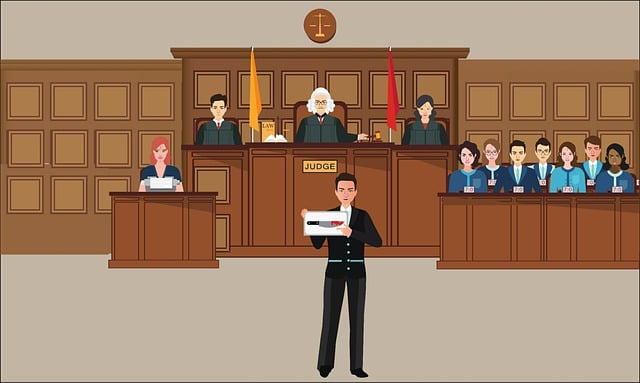Financial fraud detection relies heavily on prosecutors' strategic use of the Plea Bargaining Process, which offers an efficient alternative to trials. By recognizing common schemes like identity theft and investment scams, prosecutors identify red flags such as unusual banking activities and sudden behavioral changes. The process encourages cooperation from defendants, exposing larger fraudulent networks and potentially dismissing charges. This strategy not only resolves cases quickly but also serves as a powerful deterrent, fostering a culture of vigilance through successful prosecutions and robust internal controls within organizations.
Financial fraud, a subtle and insidious crime, demands robust detection and prosecution strategies. This article delves into the intricate world of financial fraud detection, exploring common schemes and indicators that help identify malicious activities. It examines the critical role of prosecutors in plea bargaining, offering insights on effective negotiation strategies. Additionally, it highlights preventive measures to strengthen detection and deter potential offenders, emphasizing the importance of prosecutor strategies within the plea bargaining process.
- Understanding Financial Fraud: Common Schemes and Indicators
- The Role of Prosecutors in Plea Bargaining for Fraud Cases
- Effective Strategies for Negotiating Plea Deals in Financial Fraud
- Preventive Measures: Enhancing Detection and Deterrence Mechanisms
Understanding Financial Fraud: Common Schemes and Indicators

Financial fraud is a complex and evolving crime, often involving sophisticated schemes designed to defraud individuals and institutions. Understanding these common strategies is key for prosecutors and investigators alike. Some frequent tactics include identity theft, where criminals impersonate others to gain access to sensitive financial information; investment scams, promising high returns with little or no risk; and insurance fraud, involving false claims for compensation.
Indicators of potential fraud range from unusual banking activities, such as large money transfers or suspicious transactions, to document alterations or fabricated records. Additionally, red flags may include sudden changes in financial behavior, excessive use of cash, or relationships with known fraudulent individuals. The Prosecutor Strategies in Plea Bargaining Process plays a crucial role in addressing white-collar defense cases, offering alternatives to lengthy jury trials and potentially leading to complete dismissal of all charges for cooperative defendants.
The Role of Prosecutors in Plea Bargaining for Fraud Cases

In the intricate dance of financial fraud detection and prosecution, prosecutors play a pivotal role in the plea bargaining process. This strategic negotiation is particularly crucial in cases involving white-collar and economic crimes, where the stakes are high and the nuances complex. Prosecutors employ various strategies to achieve just outcomes, balancing the need for accountability with considerations of resource allocation and the complexities of individual cases.
One notable aspect of prosecutor strategies in plea bargaining is their focus on ensuring a fair and accurate representation of the crime. They aim for complete dismissal of all charges where a defendant’s cooperation significantly aids in uncovering larger fraudulent schemes, thereby fostering an unprecedented track record of successful fraud detection. This approach not only facilitates the resolution of individual cases but also contributes to a broader strategy of deterring future financial crimes.
Effective Strategies for Negotiating Plea Deals in Financial Fraud

In the high-stakes world of financial fraud, where white-collar and economic crimes can have severe economic impacts, plea bargaining plays a significant role in the prosecutor strategies for these complex cases. The plea bargaining process allows for a more efficient resolution compared to lengthy trials, while still ensuring justice is served. Prosecutors use a range of techniques during negotiations, leveraging their understanding of the case, evidence available, and potential penalties.
An unprecedented track record of successful prosecutions can be a powerful tool in convincing defendants to accept plea deals. This involves demonstrating the effectiveness of the prosecutor’s approach, the strength of the evidence, and the potential consequences should the case go to trial. By presenting a compelling argument, prosecutors can negotiate favorable terms for the prosecution, often resulting in reduced charges or sentencing, which is beneficial for both parties involved in high-stakes cases.
Preventive Measures: Enhancing Detection and Deterrence Mechanisms

Preventive measures play a pivotal role in financial fraud detection, offering robust mechanisms to enhance identification and deter potential wrongdoers. One key strategy involves proactive prosecutor strategies in the plea bargaining process. By incentivizing cooperation from both corporate and individual clients, prosecutors can gather valuable insights into fraudulent schemes, enabling quicker and more effective interventions. This approach not only deters future crimes but also facilitates restitution for affected philanthropic and political communities.
Additionally, implementing robust internal controls and transparency measures within organizations is paramount. Regular audits, advanced data analytics, and sophisticated risk management systems empower institutions to identify anomalies early on. Furthermore, educating both employees and clients about fraud prevention can foster a culture of vigilance, encouraging everyone to play an active role in avoiding indictment for fraudulent activities.
The detection and prevention of financial fraud require a multi-faceted approach. By understanding common schemes, their indicators, and the role of prosecutors in plea bargaining, we can strengthen the criminal justice system’s ability to deter and punish fraudulent activities. Implementing effective negotiation strategies for plea deals and enhancing detection mechanisms are crucial steps towards building a more secure financial landscape. Prosecutor strategies in the plea bargaining process play a pivotal role in ensuring that fraudsters face consequences for their actions, ultimately fostering trust and stability in financial institutions.






